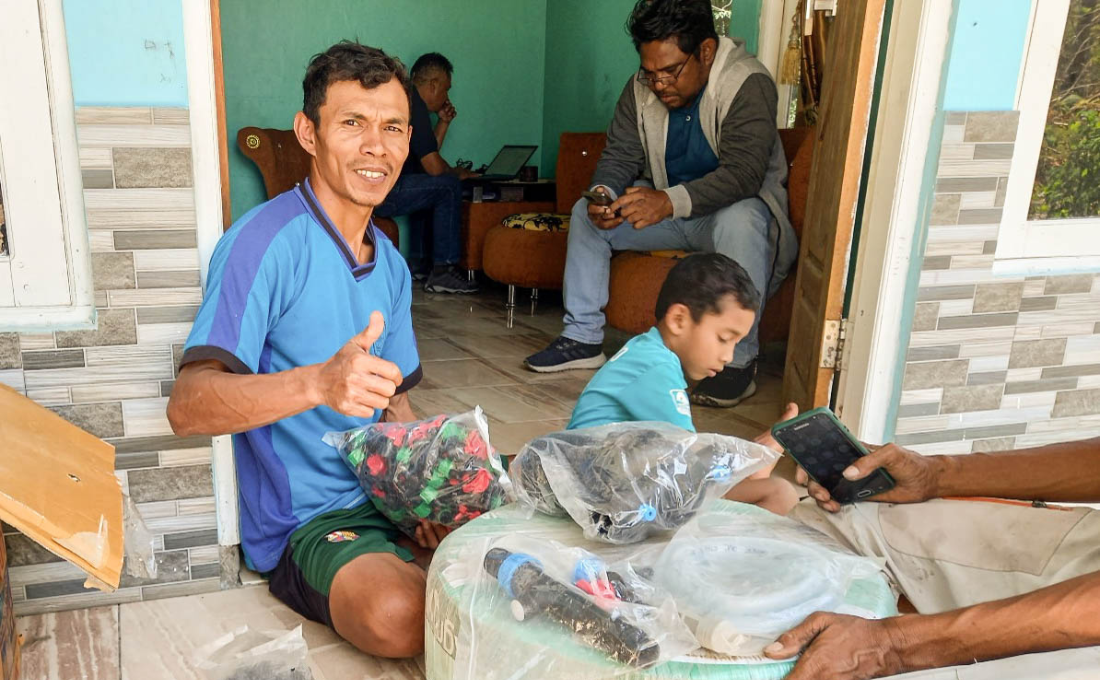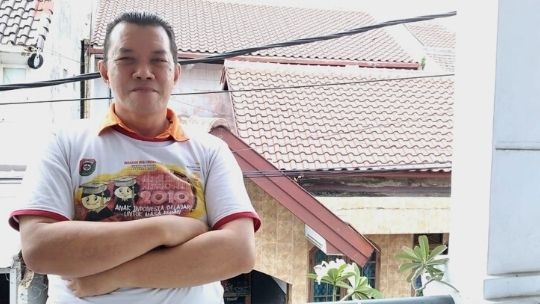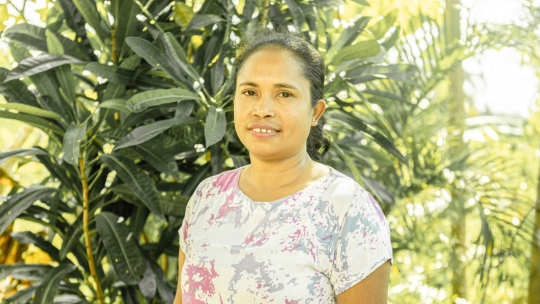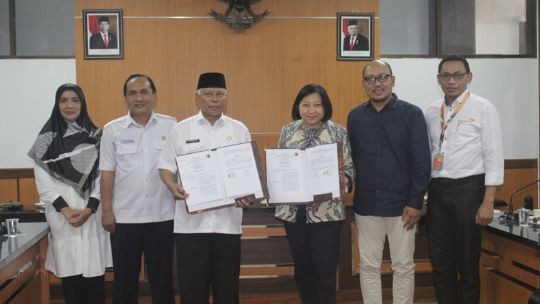Technical as well as Strategic, Kupang Farmers Become More Proficient in Agribusiness Management

Farming is the main source of income for Risal and his small family. Although many young people in his village did not see farming as a promising job and decided to leave the village, Risal (32) chose a different way of life, namely, becoming a horticultural farmer. "We have to see business opportunities in our village, we have to manage the existing potential. We don't have to go far, we have to manage what we have on our own land," he said.
As a young farmer in the village, Risal had the opportunity to rapidly innovate, not only in managing his farm but also in business management. Risal had experienced difficulties because he had not yet implemented financial records for his farm. "I thought that farming did not need to use financial records, so we never recorded income, let alone operational costs for planting and maintenance needs. We just spent it again and again, and it had an impact because the income seemed to disappear. My wife and I agreed to start keeping financial records because we had also received training from WVI," Risal said.
WVI through the INCLUSION project funded by ANCP facilitates farmers in Kupang District, East Nusa Tenggara to become more proficient in managing their farm into an agriculture business. Because farming is not only about planting and producing crops, but also managing agribusiness.
Since consistently recording all cashflow, Risal and his wife began to prioritize needs, began to be able to save, and set aside a special budget for their agricultural business activities. With this savings, Risal was then able to develop his horticultural farming business by using appropriate technology, the drip irrigation facilities. Risal was able to purchase 1 roll of irrigation hose, 80 connectors, 1 water filter, and 1 injector for an area of 60 x 25M. Currently, some of his horticultural land has drip irrigation installed and he is determined to be able to apply it to the land that has not.
"After using this drip irrigation technology, my family and I have gained many benefits. Previously, it took me 1-2 days to water the plants, but now it only takes 1-2 hours for all the plants to be irrigated. For crossing work, it is only done as needed, and for fertilizing work, previously I needed 8-10 people, and it took several days to fertilize, while now it only takes 1-2 hours with the help of one person," said Risal.
By using drip irrigation, Risal and his family can apply efficiency and effectiveness in time and labor at every stage of the work, as well as efficient use of water. "In addition, we can work on more than one farm in one planting season," said Risal's wife.
Risal does not stop at his own land but wants to pass on this good practice to other farmers. He has helped assist other farmers in maintaining their drip irrigation facilities. Risal has even been able to install new drip irrigation installations on fellow farmers' land. Risal gained this skill and knowledge when he assisted the Drip Irrigation Material Provider Staff in carrying out the installation. Independently, Risal also learned some technical matters by watching various tutorials on social media. "I think it is very important for farmers to continue to innovate with the latest agricultural methods because it is very easy for us to access information and education related to agriculture," he said.
Thanks to the good cooperation between the farmers and the INCLUSION project, several other farmers have now decided to use drip irrigation like Risal's. "Hopefully in the future, the number of farmers who want to use this drip irrigation will continue to increase," Risal hoped.
Author: Matheos R. Dima (INCLUSION Project team member)
Editor: Mariana Kurniawati (Communication Executive)



